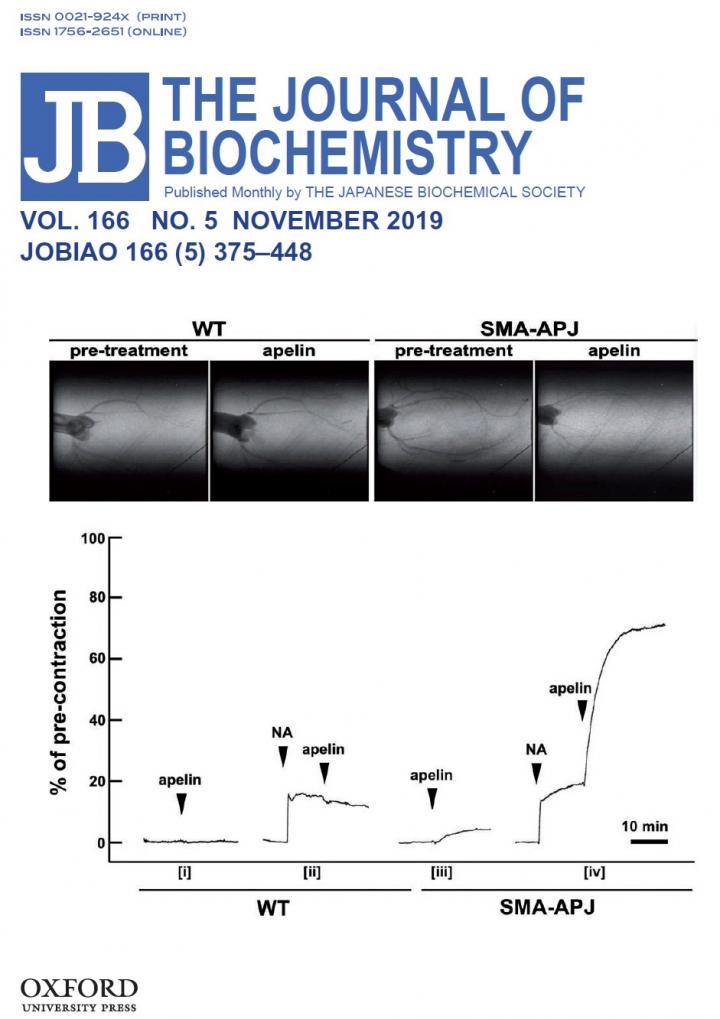University of Tsukuba-led study shows that the apelin receptor and the α1A-adrenergic receptor work in a coordinated manner to control contraction of blood vessels by modulating the function of vascular smooth muscle cells

Credit: The Japanese Biochemical Society
Tsukuba, Japan – Many questions remain about the mechanisms that control blood pressure, particularly in relation to hypertension. Among the factors involved in regulation of blood vessel behavior, the apelin receptor (APJ) has been presumed to play an important role in the contraction of blood vessels; however, this was not verified in vivo until now.
In a new study published in the Journal of Biochemistry, a research team led by experts from the University of Tsukuba investigated the activity of APJ, a membrane receptor that is commonly expressed in cardiovascular tissue, such as blood vessels and the heart, and found that APJ was closely associated with hypertension (increased blood pressure) through effects on vascular smooth muscle cells in laboratory mice.
Although prior experiments indicated that APJ might be related to hypotension (lower blood pressure), those experiments did not use vascular smooth muscle cells, which are the primary cells that express APJ. In this study, the researchers overexpressed APJ in vascular smooth muscle cells, so that its levels were much higher than in physiologically normal mice. This allowed the researchers to specifically assess the effects of activating APJ in the vascular smooth muscle cells of those mice.
“Transgenic mice that overexpressed APJ in vascular smooth muscle cells showed transient and intense elevation of blood pressure due to APJ activation through apelin injection,” says Akiyoshi Fukamizu, corresponding author on the study. “This was consistent with the vasoconstriction–blood vessel contraction–present in some types of endothelial dysfunction.”
In the study, the researchers found that activation of APJ in the presence of noradrenaline or phenylephrine, known mediators of vasoconstriction, led to further vasoconstriction. This suggested a potential synergistic effect with the target of noradrenaline and phenylephrine, the α1A-adrenergic receptor.
“Our analyses revealed that vasoconstriction was prominent in transgenic mice with activated APJ, so we tested whether vasoconstriction would be reduced by the removal of α1A-adrenergic receptor from those mice,” says Junji Ishida, author on the study. “We found that vasoconstriction was greatly reduced by the loss of α1A-adrenergic receptor, despite the high levels of activated APJ in those mice.”
Furthermore, the researchers showed that APJ and α1A-adrenergic receptor physically interacted within cells in laboratory assays, which suggested that this direct interaction may be responsible for the vasoconstriction observed in the mice. The results of this study may help to understand the mechanisms that control blood pressure and support the development of therapies for conditions such as vascular stenosis and vasospasm.
###
Media Contact
Naoko Yamashina
[email protected]
81-298-532-066
Related Journal Article
http://dx.




